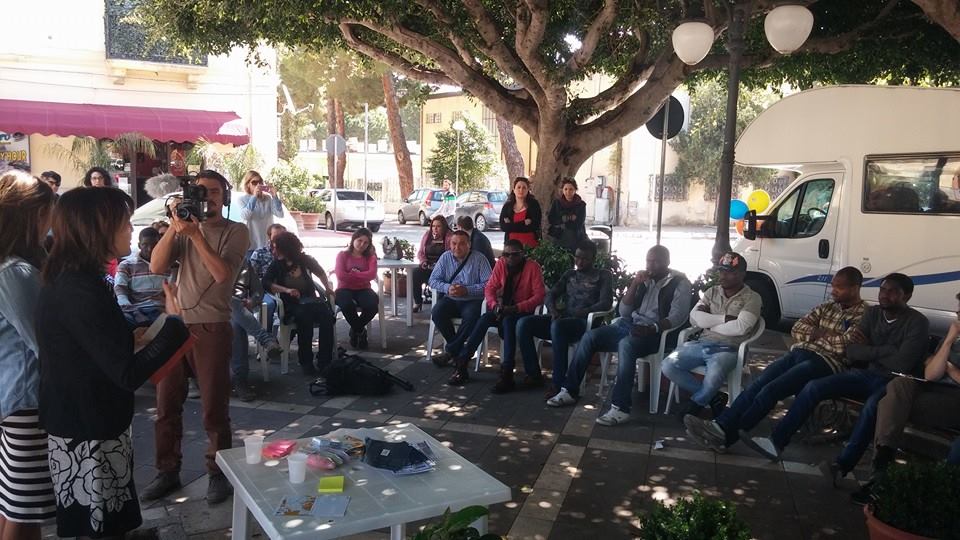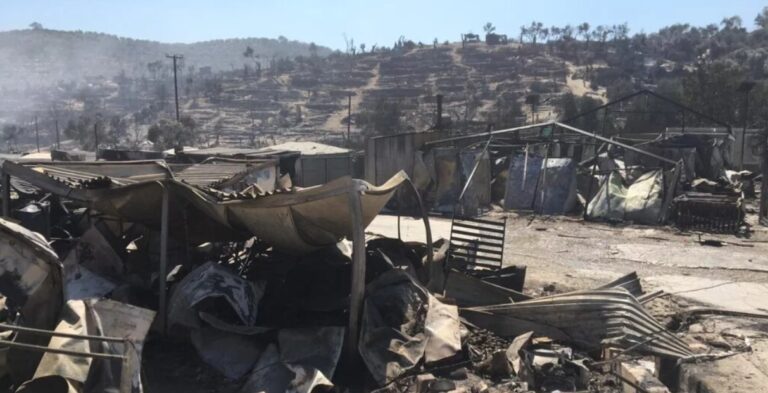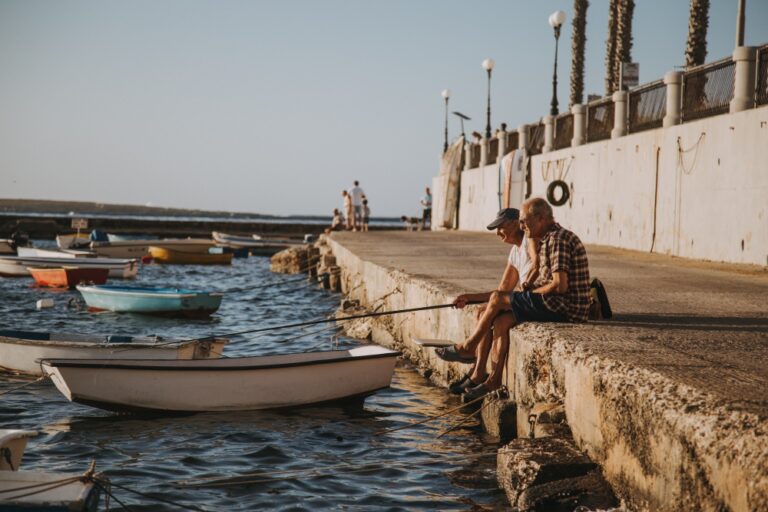In this contribution, Anna Lodeserto questions the currently growing narrative aimed at undermining the courageous example of welcome and reception policies toward migrants carried out by the Calabria’s town of Riace since the beginning of this millennium. As one of the promoter of the 2014 European Alternatives’ Caravan which visited Riace, she reminds us of all the positive social and political innovation Riace has been representing for many other towns facing depopulation and migration challenges. This contribution includes the short movie on the Caravan : “Europe restarts from its South (L’Europa riparte dal suo Sud)”.
Five years ago, right before the 2014 European Parliament elections and as a fundamental part of the alternative, citizens-led campaign that was carried out by my previous organisation – European Alternatives (EA) – there were six caravans reaching out to European citizens and residents at their sites of struggle, and to other initiatives during three intense weeks. At that time, I personally coordinated two of these caravans: one from the Iberian region (Spain and Portugal @TEC_Iberian) and the other from the South-East European region (Italy and the Western Balkans @TEC_South). These two caravans contributed to the development of one of the best projects in the EA network’s history. The places we crossed, the people we met, and the adventures we were plunged into are still present in my life, both personal and professional. Some of these places were to become more widely recognised in many ways, and Riace is among them.
I had already been to Riace a couple of times before the caravan, between 2012 to 2014, and this for other European projects and local workcamps.
In the video produced for the “Transeuropean Caravans Project”, Baram Hacar, the first Kurdish person to settle there in Riace, offered us a precious testimonial. Riace was such a peaceful and sunny place on the day we filmed that the dark times of recent days are still hard to imagine. When the Mayor came out of the Town Hall, he was not looking for a stage, nor for visibility. He simply seemed concerned about our basic needs – whether we had enough food or proper accommodation (“Avete da dormire? Avete abbastanza da mangiare” – he asked us). It was an intimate scene, so soaked in sweetness, that we agreed with the filmmaker not to include it in the final video – to keep that memory for ourselves.
Some of the struggles we fought for before, during and after that campaign, ranging from the reform of the Dublin system to the adoption of a new EU migration and asylum policy, could now come across as outdated. The new Italian government is in fact grasping any opportunity to attack and dismantle what remains of the migrant reception system and integration services provided at the local level – and for which Riace was a best model – with ever-greater ferocity. To continue this story of contradictions: international observers and media from across the globe document and praise something that here, in the country of origin, is still perceived as a taboo: the great extent of the impact of the sort of inclusion strategies pursued by mayors such as Riace’s Domenico Lucano, which have succeeded in reigniting the economy of former ghost-towns in Southern Italy, where the organised crime groups had reigned for decades. I think that what is still valid and currently present in this short video on the Caravan I attach is to be found in its very title:
“Europe restarts from its South (L’Europa riparte dal suo Sud)”!
February 2, 2019.



